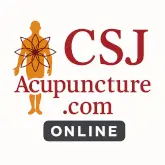This post may contain affiliate links and ads in which we may earn a small percentage of purchases.
Quick Links
Irritable Bowel Syndrome (IBS) is a long-lasting digestive condition that affects millions of people worldwide. While it is not life-threatening, it can seriously disrupt daily life with symptoms such as abdominal pain, bloating, diarrhea, constipation, and unpredictable bowel habits. Many patients try medications, diet changes, and psychological therapies, yet still struggle. These patients are often considered to have refractory IBS, meaning they have not responded to standard treatments.
A multicenter randomized controlled trial (RCT) published in 2024 looked at whether acupuncture could help these hard-to-treat cases. The study compared real acupuncture to sham (placebo) acupuncture while patients continued their usual medications. The results were both significant and clinically meaningful.
What Is IBS? A Simple Background
IBS is a functional gastrointestinal disorder, which means symptoms are real but occur without visible damage to the digestive organs. Researchers now understand IBS as a gut–brain axis disorder, meaning the intestines and nervous system are communicating abnormally.
Common causes and aggravating factors include:
A clear and beginner-friendly guide covering over 400 acupuncture points, ideal for students and learners.
 View Book
View Book
A stainless-steel acupuncture pen and gua sha set.
 View Product
View Product
- Chronic stress or anxiety
- Abnormal gut motility
- Sensitivity to certain foods
- Gut microbiome imbalance
- Past infections
- Hormonal changes
- Sleep disturbances
IBS is typically divided into subtypes:
- IBS-D (diarrhea-predominant)
- IBS-C (constipation-predominant)
- IBS-M (mixed type)
About 60% of IBS patients are dissatisfied with standard treatments, and many continue to have symptoms for years. That is why safe, low-risk options like acupuncture are being studied as possible add-on therapies.
Overview of the Acupuncture IB Study
This trial was conducted at six hospitals in China between 2020 and 2022. It is one of the largest and most rigorous acupuncture studies for IBS to date, using strong methods such as:
- Randomization
- Sham control
- Blinded participants and blinded outcome assessors
- Predefined treatment protocols
- Follow-up assessments
The study focused specifically on refractory IBS, a group that often struggles the most.
How Many Patients Were Studied?
- 521 patients were screened
- 170 patients qualified and enrolled
- They were randomly divided into:
- 85 in the true acupuncture group
- 85 in the sham (placebo) acupuncture group
Only 10 patients dropped out, giving the study a strong completion rate of 94%.
Who Qualified for the Study?
Patients had to meet strict criteria, including:
- Age 18–70
- IBS symptoms lasting at least 12 months
- Normal colonoscopy results (if age 50 and older)
- Failure to improve after at least 6 weeks of diet modification
- Failure after at least 6 weeks of standard medications
Patients were not included if they had:
- Organic bowel diseases
- Red-flag symptoms like unexplained bleeding or fever
- Severe heart, brain, immune, or endocrine diseases
- Major psychological disorders
- Pregnancy or recent acupuncture treatments
How the Treatments Were Given
Both groups received 12 sessions over 4 weeks:
- 3 sessions per week
- 30 minutes each session
True Acupuncture Group
Patients received needling at commonly used digestive-related acupuncture points:
Needles were inserted to standard depth, and manual stimulation was performed to achieve deqi, the typical sensation associated with effective acupuncture.
Sham Acupuncture Group
To create a placebo control:
- Needles were inserted at non-acupuncture points
- Needles were placed more shallowly
- No deqi stimulation was performed
What Were the Results?
Symptom Severity (Primary Outcome)
The main measurement was the change in the IBS Symptom Severity Score (IBS-SSS) at 4 weeks.
- The true acupuncture group improved by 140 points
- The sham group improved by 64 points
- The difference between groups was 76 points
A 50-point drop is considered a meaningful improvement. In this study:
- 90.6% of acupuncture patients reached that level
- Only 44.7% of sham patients did
This means patients receiving true acupuncture were more than twice as likely to experience significant improvement.
Other Key Findings
Improved Quality of Life
Acupuncture patients had a better overall quality of life, less interference with work and social life, Greater satisfaction with bowel habits
Better Stool Regularity
Patients receiving acupuncture showed:
- More regular weekly bowel movements
- Improvements in stool form
- Benefits lasting through week 8
Emotional Well-Being
While both groups showed some reduction in anxiety and depressive symptoms, the acupuncture group showed a stronger overall pattern of improvement.
Safety
Acupuncture was well tolerated:
- Only mild, temporary side effects such as small bruises
- No serious adverse events
What This Means for Patients with Refractory IBS
This trial provides strong evidence that acupuncture can be a meaningful, low-risk treatment option for patients who have not responded to usual care.
Key takeaways:
- Acupuncture significantly reduced IBS symptoms compared to sham.
- Improvements were noticeable within two weeks and continued to build.
- Benefits lasted at least eight weeks, even after treatments stopped.
- Quality of life improved across multiple areas.
- Treatment was safe, with minimal discomfort.
Because the study included patients continuing their standard care, acupuncture can be considered an adjunct treatment rather than a replacement. For people with long-term IBS who have not found relief, acupuncture may offer real, measurable benefits, especially for symptoms like abdominal pain, bloating, and irregular bowel habits.
References:
Zhao J, Zheng H, Wang X, et al. Efficacy of acupuncture in refractory irritable bowel syndrome patients: a randomized controlled trial. Front Med. 2024;18(4):678-689. doi:10.1007/s11684-024-1073-7
Jump-start your metabolism with the 21-Day Smoothie Diet! Replace meals with delicious, nutrient-packed smoothies that help burn fat, boost energy, and keep you feeling full. Start your transformation today →
Medical Disclaimer: This article is for informational and educational purposes only and is not a substitute for professional medical advice, diagnosis, or treatment. Always consult a qualified healthcare provider with any questions about a medical condition or treatment.






